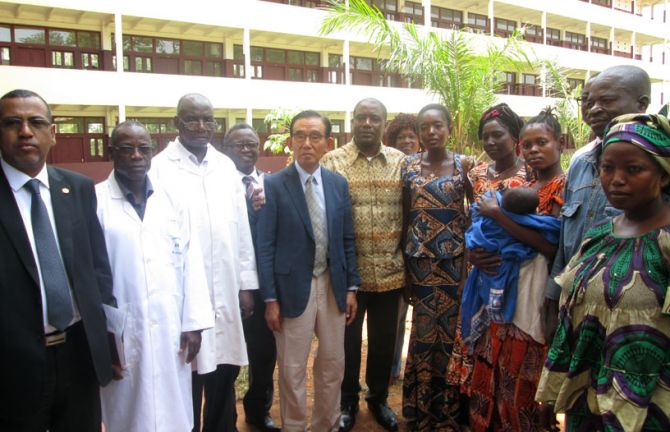

Update
Hundreds of people living with HIV resume treatment in the Central African Republic
17 March 2015
17 March 2015 17 March 2015More than 540 people living with HIV in the capital of the Central African Republic, Bangui, have been able to resume taking antiretroviral therapy owing to a joint project run by UNAIDS and the government of the Republic of Korea.
The recent instability in the country forced many people away from their homes and into camps for internally displaced people, where health services are limited. In addition, many health facilities were destroyed, inaccessible or unstaffed during the crisis. Around a third of people on antiretroviral therapy across the country were unable to continue their treatment.
Social services and community volunteers have located 544 of 1500 people who left treatment programmes in Bangui, enabling them to resume access to the life-saving medication. UNAIDS and the government of the Republic of Korea aim to extend the project to other provinces and to start rebuilding some of the country’s shattered health infrastructure.
A total of 120 000 people were living with HIV in the Central African Republic in 2013, with about 16 500 on antiretroviral therapy.
Quotes
“The resumption of antiretroviral therapy for people living with HIV will certainly facilitate the achievement of the 90–90–90 objectives by 2020.”
“This action fits well within the UNAIDS strategy of Fast-Tracking the AIDS response in cities and mobilizing local communities to accelerate the response to HIV and end the AIDS epidemic by 2030.”
“When the war started, I fled to a camp for displaced people. There, I wasn’t able to get my medicine and my health got worse. I felt like I was going to die. When the social workers came to the camp to tell us we could go to the clinic to resume treatment, I didn’t hesitate. Now I’ve regained my strength and have hope.”



